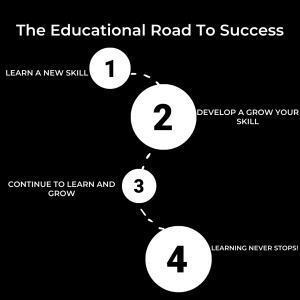Best Master’s Degrees for Finding a Job
Picking the best master’s degree for getting a job is often hard. Not only do you have to figure out what you really want to do, but you also have to figure out where you want to do it and which school will help you get hired upon graduation. However, earning your graduate degree should be more about what you want to do than what college or university to opt for. A school’s reputation is often secondary to its students’ passions, so you should focus on finding the right program. To help you weigh your options, we looked at some of the unique skills graduates get from earning their master’s degrees.
Many people put off graduate school, but getting a graduate degree can pay off in the long run. People who earn master’s degrees are more likely to find jobs that pay more and require a higher-level degree. By earning your graduate degree online, you can complete your coursework around your current work schedule. Figure out which degree can help you get to where you want to be in your career.
What is the best master’s degree for finding a job?
If you’ve already earned a bachelor’s degree and you’re looking for a job, you might be wondering which master’s degree would be best for improving your career. The answer depends on what you want to do with your degree. Some master’s degrees are designed for students looking to prepare for a teaching career. Others are designed to prepare students to work in a specific industry, such as health care or government. Still, others are designed for students looking to pursue specific fields in research, such as nursing, computer science, math, or chemistry.
Getting a college degree is a great way to get ahead in your career, but it’s not always easy to get a job-especially with competition from other qualified candidates. However, higher education can mean higher pay and better career prospects, and there are plenty of jobs out there for people with master’s degrees. Check out the best master’s degrees for getting a job.
- Master of Science in Nursing – Pursuing a Master of Science in Nursing (MSN) is an excellent way to enhance your nursing skills and advance your career. However, if you don’t possess all the necessary qualifications, starting with a CNA School & Certification can be the first step on the path to an MSN. This foundational training provides crucial hands-on experience and a solid foundation in patient care, not only preparing you for more advanced roles but also offering valuable insights into the healthcare field that will be instrumental as you progress in your nursing career. Becoming a nurse can be an amazing path that many want to take, however, there can be bumps in the road including having your licence revoked in some circumstances. Before you dash your nursing dreams, you may be wondering – Can a revoked nursing license be reinstated? Once you have the necessary information, you can then look at potentially progressing your career in nursing and look at additional programs. But always make sure at first before jumping ahead.
As you eventually enroll in an MSN program, you’ll learn how to analyze and interpret data and even become an expert witness. If you’re interested in becoming a nurse educator, this degree is an excellent choice. An MSN will also get you ready for leadership positions by equipping you with expertise in nursing informatics, health policy, and research. With an MSN, you can explore various nursing jobs and find the right fit for you. Platforms like https://gethirely.com/ can help you discover and apply for suitable nursing positions that align with your skills and career goals.
- Master of Science in Statistics – Statistics is a field that deals with how data are analyzed, interpreted, and communicated. It analyzes data based on probability and explores which conclusions are more likely. It’s a field that deals with both small and big numbers, so people who study statistics learn how to make sense of everything, from the number of calories in a cheeseburger to the number of planets in our solar system.
- Master of Arts in Political Science – A master’s degree in political science can help you develop a broader, more interdisciplinary approach to problem-solving. It can also teach you practical skills, such as studying statistics, conducting research, and communicating your ideas. And a political science degree can prepare you for a number of different careers, including public policy, academia, and law.
- Master of Science in Healthcare Administration – The Master of Science in Healthcare Administration (MSHA) degree is quickly becoming a popular degree for nurses and other healthcare providers. The MHA degree prepares students for a variety of roles in their healthcare career, from practicing nursing to managing a healthcare facility. An MHA degree gives graduates the tools and skills they need to enter a variety of healthcare professions, including financial planning, healthcare administration, health policy, and research.
- Master of Science in Electrical Engineering – Electrical engineering has two distinct paths: the hands-on design path and the applied path, which deals with the science behind how electrical devices work. Engineers who design and create electrical devices, such as transistors and microchips, are known as electrical engineers. In contrast, those who work on algorithms and computer software are known as computer engineers. Many aspiring computer engineers pursue a degree in electrical engineering, which serves as a strong foundation for other computer-related fields should they choose to continue their studies.


